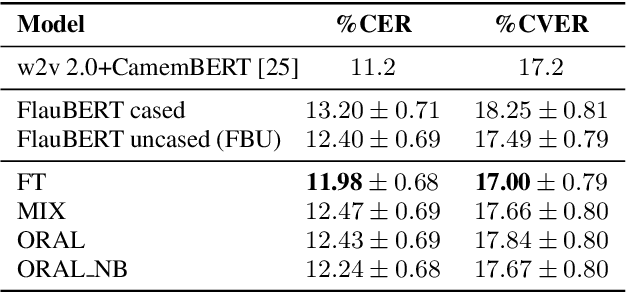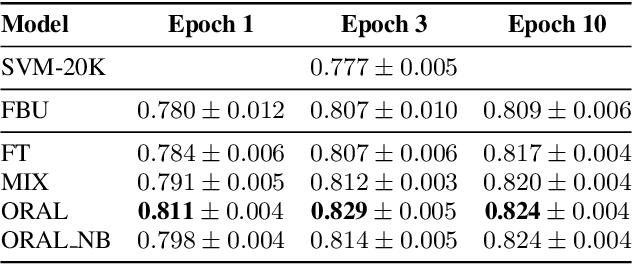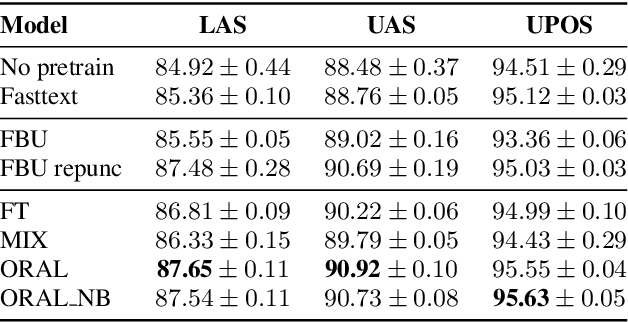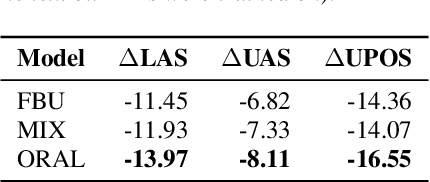Benoit Favre
LIF
CareMedEval dataset: Evaluating Critical Appraisal and Reasoning in the Biomedical Field
Nov 05, 2025



Abstract:Critical appraisal of scientific literature is an essential skill in the biomedical field. While large language models (LLMs) can offer promising support in this task, their reliability remains limited, particularly for critical reasoning in specialized domains. We introduce CareMedEval, an original dataset designed to evaluate LLMs on biomedical critical appraisal and reasoning tasks. Derived from authentic exams taken by French medical students, the dataset contains 534 questions based on 37 scientific articles. Unlike existing benchmarks, CareMedEval explicitly evaluates critical reading and reasoning grounded in scientific papers. Benchmarking state-of-the-art generalist and biomedical-specialized LLMs under various context conditions reveals the difficulty of the task: open and commercial models fail to exceed an Exact Match Rate of 0.5 even though generating intermediate reasoning tokens considerably improves the results. Yet, models remain challenged especially on questions about study limitations and statistical analysis. CareMedEval provides a challenging benchmark for grounded reasoning, exposing current LLM limitations and paving the way for future development of automated support for critical appraisal.
Crossing the Species Divide: Transfer Learning from Speech to Animal Sounds
Sep 04, 2025Abstract:Self-supervised speech models have demonstrated impressive performance in speech processing, but their effectiveness on non-speech data remains underexplored. We study the transfer learning capabilities of such models on bioacoustic detection and classification tasks. We show that models such as HuBERT, WavLM, and XEUS can generate rich latent representations of animal sounds across taxa. We analyze the models properties with linear probing on time-averaged representations. We then extend the approach to account for the effect of time-wise information with other downstream architectures. Finally, we study the implication of frequency range and noise on performance. Notably, our results are competitive with fine-tuned bioacoustic pre-trained models and show the impact of noise-robust pre-training setups. These findings highlight the potential of speech-based self-supervised learning as an efficient framework for advancing bioacoustic research.
Increasing faithfulness in human-human dialog summarization with Spoken Language Understanding tasks
Sep 16, 2024



Abstract:Dialogue summarization aims to provide a concise and coherent summary of conversations between multiple speakers. While recent advancements in language models have enhanced this process, summarizing dialogues accurately and faithfully remains challenging due to the need to understand speaker interactions and capture relevant information. Indeed, abstractive models used for dialog summarization may generate summaries that contain inconsistencies. We suggest using the semantic information proposed for performing Spoken Language Understanding (SLU) in human-machine dialogue systems for goal-oriented human-human dialogues to obtain a more semantically faithful summary regarding the task. This study introduces three key contributions: First, we propose an exploration of how incorporating task-related information can enhance the summarization process, leading to more semantically accurate summaries. Then, we introduce a new evaluation criterion based on task semantics. Finally, we propose a new dataset version with increased annotated data standardized for research on task-oriented dialogue summarization. The study evaluates these methods using the DECODA corpus, a collection of French spoken dialogues from a call center. Results show that integrating models with task-related information improves summary accuracy, even with varying word error rates.
"Do you follow me?": A Survey of Recent Approaches in Dialogue State Tracking
Jul 29, 2022



Abstract:While communicating with a user, a task-oriented dialogue system has to track the user's needs at each turn according to the conversation history. This process called dialogue state tracking (DST) is crucial because it directly informs the downstream dialogue policy. DST has received a lot of interest in recent years with the text-to-text paradigm emerging as the favored approach. In this review paper, we first present the task and its associated datasets. Then, considering a large number of recent publications, we identify highlights and advances of research in 2021-2022. Although neural approaches have enabled significant progress, we argue that some critical aspects of dialogue systems such as generalizability are still underexplored. To motivate future studies, we propose several research avenues.
ASR-Generated Text for Language Model Pre-training Applied to Speech Tasks
Jul 05, 2022



Abstract:We aim at improving spoken language modeling (LM) using very large amount of automatically transcribed speech. We leverage the INA (French National Audiovisual Institute) collection and obtain 19GB of text after applying ASR on 350,000 hours of diverse TV shows. From this, spoken language models are trained either by fine-tuning an existing LM (FlauBERT) or through training a LM from scratch. New models (FlauBERT-Oral) are shared with the community and evaluated for 3 downstream tasks: spoken language understanding, classification of TV shows and speech syntactic parsing. Results show that FlauBERT-Oral can be beneficial compared to its initial FlauBERT version demonstrating that, despite its inherent noisy nature, ASR-generated text can be used to build spoken language models.
Zero-Shot and Few-Shot Classification of Biomedical Articles in Context of the COVID-19 Pandemic
Jan 11, 2022



Abstract:MeSH (Medical Subject Headings) is a large thesaurus created by the National Library of Medicine and used for fine-grained indexing of publications in the biomedical domain. In the context of the COVID-19 pandemic, MeSH descriptors have emerged in relation to articles published on the corresponding topic. Zero-shot classification is an adequate response for timely labeling of the stream of papers with MeSH categories. In this work, we hypothesise that rich semantic information available in MeSH has potential to improve BioBERT representations and make them more suitable for zero-shot/few-shot tasks. We frame the problem as determining if MeSH term definitions, concatenated with paper abstracts are valid instances or not, and leverage multi-task learning to induce the MeSH hierarchy in the representations thanks to a seq2seq task. Results establish a baseline on the MedLine and LitCovid datasets, and probing shows that the resulting representations convey the hierarchical relations present in MeSH.
Robust Semantic Parsing with Adversarial Learning for Domain Generalization
Oct 01, 2019



Abstract:This paper addresses the issue of generalization for Semantic Parsing in an adversarial framework. Building models that are more robust to inter-document variability is crucial for the integration of Semantic Parsing technologies in real applications. The underlying question throughout this study is whether adversarial learning can be used to train models on a higher level of abstraction in order to increase their robustness to lexical and stylistic variations.We propose to perform Semantic Parsing with a domain classification adversarial task without explicit knowledge of the domain. The strategy is first evaluated on a French corpus of encyclopedic documents, annotated with FrameNet, in an information retrieval perspective, then on PropBank Semantic Role Labeling task on the CoNLL-2005 benchmark. We show that adversarial learning increases all models generalization capabilities both on in and out-of-domain data.
Building a robust sentiment lexicon with no resource
Dec 15, 2016


Abstract:Creating sentiment polarity lexicons is labor intensive. Automatically translating them from resourceful languages requires in-domain machine translation systems, which rely on large quantities of bi-texts. In this paper, we propose to replace machine translation by transferring words from the lexicon through word embeddings aligned across languages with a simple linear transform. The approach leads to no degradation, compared to machine translation, when tested on sentiment polarity classification on tweets from four languages.
 Add to Chrome
Add to Chrome Add to Firefox
Add to Firefox Add to Edge
Add to Edge